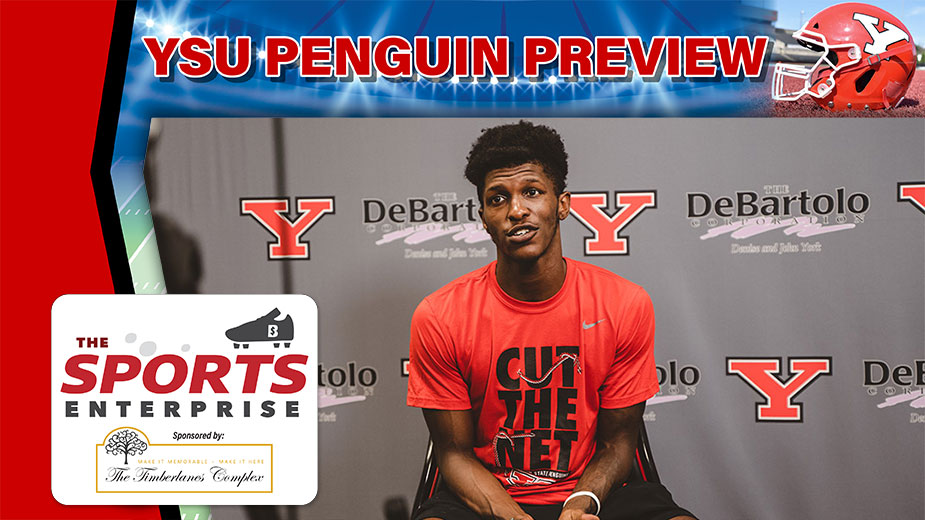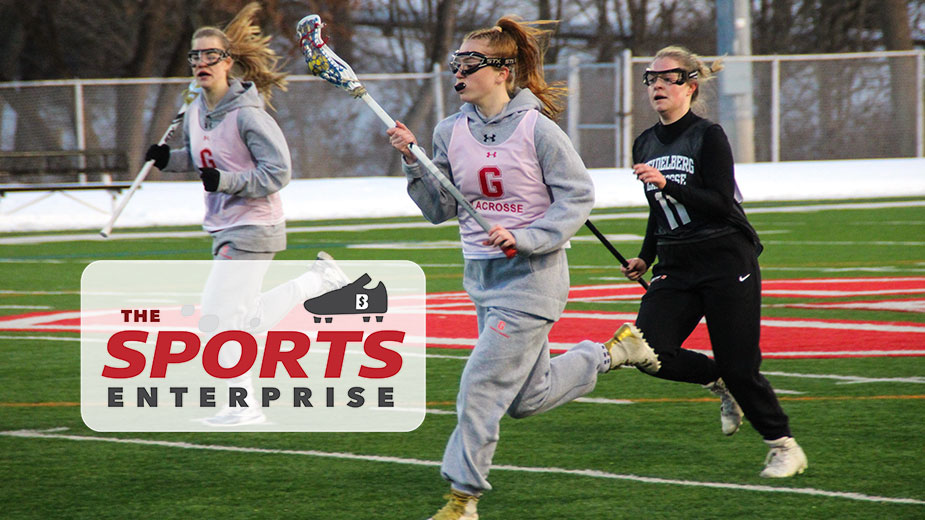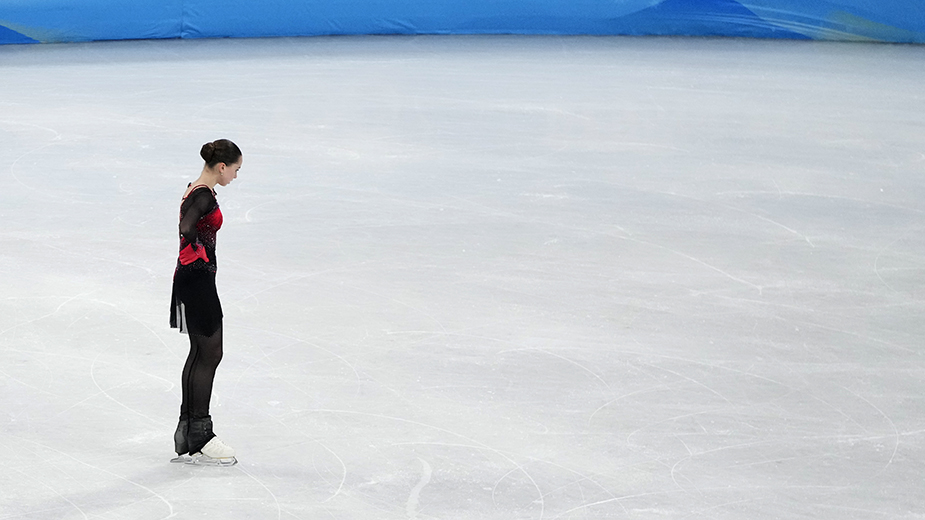YSU Athletes Score with Their Names, Images
YOUNGSTOWN, Ohio – July 1 couldn’t come fast enough for Dwayne Cohill. Nor could it for other collegiate athletes at Youngstown State University.
Ohio is one of 15 states where laws have gone into effect supporting NCAA and National Junior College Athletic Association student-athletes’ right to be compensated for the commercial use of their names, images and likenesses arising from their skills and accomplishments. Before these state laws, collegiate athletic governing bodies banned this practice.
Cohill, a junior men’s basketball player, says the topic came up with his teammates and he started to brainstorm about the brands he could support – reaching out to various businesses around his hometown of Cleveland. The transfer from the University of Dayton promotes Grip Spritz, a spray that keeps the soles of basketball shoes clean, and provides greater traction on the court and some other surfaces.
“It was a big opportunity for all of us because it gives us a good chance to make some money,” says Cohill, who has signed at least a half-dozen contracts.
Locally, Sweeney Chevrolet Buick GMC, Southwoods Health and Farmers National Bank all say they have not reached out to any YSU athletes for advertising purposes. Alexa Sweeney Blackann, president of Sweeney Chevrolet Buick GMC, however, adds, “That’s an interesting idea.”
According to the executive order signed by Gov. Mike DeWine, student-athletes cannot enter into a contract with companies that promote controlled substances, marijuana, alcoholic, smoking or vaping products, along with gambling entities and those displaying adult entertainment or any type of sexual activity.
Student-athletes must have their contracts reviewed by the athletics compliance department of the university before entering into such deals.
“The student is doing something to get something,” says Rebecca Fink, YSU assistant athletics director for compliance. “A company can’t reach out and just say, ‘Hey, I’m going to send [the athlete] five T-shirts without [that company] putting a post on social media, promoting the product or whatever the arrangement is.’ That’s one thing we’re looking for as an institution.”
YSU Director of Athletics Ron Strollo says he’s aware of about 10 of his 530 student-athletes taking advantage of name, image and likeness.
“It’s up to us to follow the state law that DeWine signed,” he says.
Strollo says YSU is in the process of retaining a third-party company to help it sift through the process. He is worried student-athletes could lose eligibility and encounter issues on tax returns and other setbacks.
The outside resource would help student-athletes with educational resources and keep track of income they receive through these name, image and likeness endeavors.
“There’s a lot of potential pitfalls for the kids,” Strollo says.
For instance, this type of income could affect the student’s financial aid or scholarships.
Patrick Hoffman, director of YSU’s financial aid and scholarships, says income made from name, image and likeness is taxable income and needs to be reported on the free application for federal student aid (FAFSA).
It could reduce a student-athlete’s eligibility for needs-based aid such as a federal Pell Grant.
Hoffman stresses student-athletes should contact his office to ask questions how name, image and likeness income would have an effect on their financial aid.
“It’s too early to determine the impact this will have on student-athletes at YSU in terms of their financial aid as there are a lot of implications and unanswered questions,” he says. “We are waiting for [YSU] Athletics to finalize their policy and procedures.”
YSU has about 60 international student-athletes ineligible to take advantage of name, image and likeness, unless the advertiser is from their home country, Fink says. Even then, those athletes have to check with the campus international office to see how it affects their status in the United States.
“That is definitely a slippery slope,” she says.
Fair-market value is what Fink emphasizes to student-athletes entering into contracts since some of these deals are with online companies. Some people have more followers on Instagram, TikTok, Snapchat and Twitter than others and there is software to determine worth when it comes to name, image and likeness.
As she explains, the value of each post varies greatly depending on the platform and the athlete. “So understanding their value is [important] as well,” Fink says.
She adds the school’s office of the general counsel provides legal advice on these matters and works through the more elaborate contracts.
Fink, who played women’s soccer at YSU, says this is a challenging subject for the athletics department and the university in terms of implementing policy and procedures.
“I think in the long run it’ll be great for students to be able to have this opportunity and be able to pursue these activities,” she says.
Basketball player Cohill states some contracts give him 8% to 10% per sale but some are on a much larger scale. As of July 21, he says, he hasn’t seen much profit but says he’s expecting some in the weeks ahead.
Cohill’s biggest advice to any athlete taking advantage of his name, image and likeness is to read the fine print on a contract and have trusted people read the paperwork as well.
“Just try to take your time with everything,” Cohill says. “Don’t get overwhelmed.”
Pictured: Youngstown State University men’s basketball player Dwayne Cohill poses for team videos. The junior student-athlete has signed at least a half-dozen contracts with businesses, taking advantage of an Ohio law allowing college student-athletes to capitalize on name, image and likeness.
Copyright 2024 The Business Journal, Youngstown, Ohio.



